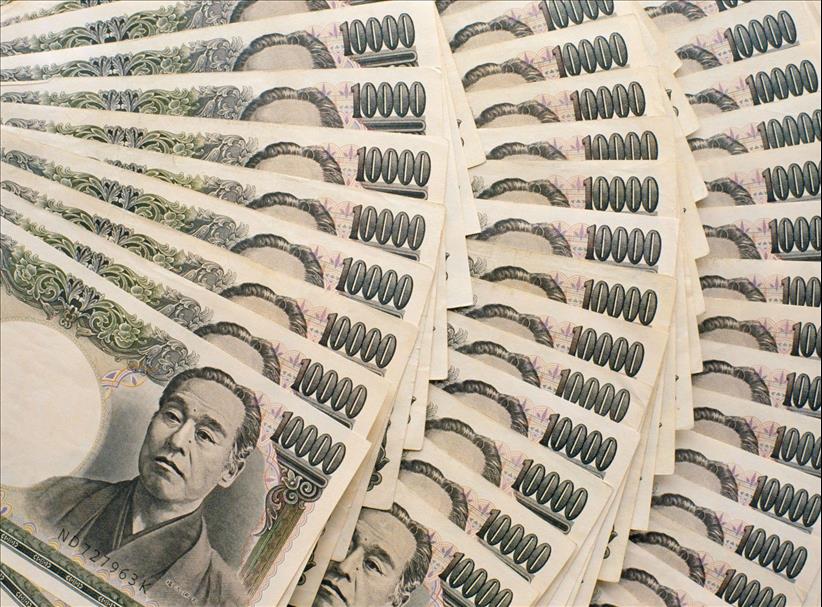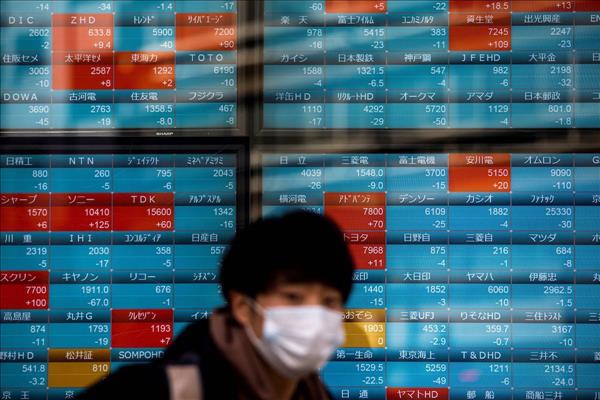(MENAFN- Asia Times) TOKYO – Did the Bank of Japan (BOJ) just cry 'uncle!' as it widened its bond-trading band and signaled its throttling back on stock buying?
No. But Friday's mild tightening moves by BOJ Governor Haruhiko Kuroda suggest Tokyo realizes what it's been doing these last few years isn't working.
More broadly, the implications of Kuroda's ploy have hit markets that are geographically far removed from BOJ headquarters in Tokyo.
In true 'butterfly-wing' fashion, the smallest of ripples in Tokyo was enough to catch a fragile, jittery and frankly vulnerable US by surprise and prompt a 'risk-off' trade.
US Treasury yields spiked following hints on Thursday about the BOJ's tweak, which amounts to a tiny tightening of credit conditions. US 10-year yields briefly rose to 1.75% for TO READ THE FULL STORY {{ sharing.sharer }} paid $1.00 to share this story with you.
Click to read it. Buy it for just $1.00
sign-in • add your credit card once • pay as you read • no obligation
Or to Asia Times for
$100 per year or $10 per month.
Special discount rates apply for .
Already a subscriber to Asia Times? . TO READ THE FULL STORY {{ sharing.sharer }} paid $1.00 to share this story with you.
Click to read it. Buy it for just $1.00
sign-in • add your credit card once • pay as you read • no obligation
Or to Asia Times for
$100 per year or $10 per month.
Special discount rates apply for .
Already a subscriber to Asia Times? . Oops, we have a problem. {{{message}}}
{{#message}}{{{message}}}{{/message}}{{^message}}It appears your submission was successful. Even though the server responded OK, it is possible the submission was not processed. Please contact the developer of this form processor to improve this message. {{/message}}
Submitting…
Thanks for supporting quality journalism!
Your story will be shown in a few seconds.
(if it doesn't, .)
Enjoy the read.
TOKYO – Did the Bank of Japan (BOJ) just cry 'uncle!' as it widened its bond-trading band and signaled its throttling back on stock buying?
No. But by BOJ Governor Haruhiko Kuroda suggest Tokyo realizes what it's been doing these last few years isn't working.
More broadly, the implications of Kuroda's ploy have hit markets that are geographically far removed from BOJ headquarters in Tokyo.
In true 'butterfly-wing' fashion, the smallest of ripples in Tokyo was enough to catch a fragile, jittery and frankly vulnerable US by surprise and prompt a 'risk-off' trade.
US Treasury yields spiked following hints on Thursday about the BOJ's tweak, which amounts to a tiny tightening of credit conditions. US 10-year yields briefly rose to 1.75% for the first time since January 2020. Crude prices fell as much as 7%.
Such changes don't happen in a vacuum. Currently, the world is dominated by geopolitical jitters as the Joe Biden administration makes early moves in its China policy, and financial jitters that are a recognition of just how much money Washington owes the world.
The BOJ's fine-tuning was made official only hours after the diplomatic corps of the US and Chinese faced off in spectacular fashion in Alaska. The of the first meeting between President Joe Biden's Secretary of State Antony Blinken and his comes as America's debt load careens toward US$30 trillion – and China holds the mortgage.
Beijing and Tokyo are by far the biggest holders of US Treasury securities. That fact, combined with the BOJ's butterfly wing flap, caused a quick spike in US rates.
All this speaks to the precariousness of the moment.

Japan is deploying hundreds of trillions of yen in stimulus, but its economic impact is suffering from the law of diminishing returns. Photo: AFP
Kuroda's tweaks
The BOJ's policy review was its first since 2016. It made two moves.
On the monetary front, the BOJ is widening its flexible trading band to on either side of its 0% target for the 10-year yield. On the stock side, the BOJ may throttle back from its annual 6 trillion yen ($55 billion) of purchases via exchange-traded funds.
As Kuroda said in a Friday afternoon press briefing: 'Japan's economy remains in a severe state due to the impact of the pandemic, but picking up … It is expected to improve as a trend as the pandemic's impact subsides.'
The same day that traders were digesting the BOJ's recalibration efforts came news that consumer prices fell for a month in February.
Thanks to Covid-19 disruptions, Kuroda's team is as far as it's even been away from its 2% price target. So Friday's steps were less of a victory lap than an admission the BOJ is doing more harm than good.
Banks, for example, have complained since 2016 that the BOJ's negative rate policies were killing profit margins. Commercial and smaller regional institutions in particular claim the BOJ's yield curve control policy made lending and trading exponentially more difficult.
The problem is the 'flat' spread between two-year and 30-year Japanese , roughly 80 basis points.
Bankers rely on the spread to borrow at one rate in money markets and lend at a higher one, pocketing the difference. Japan's flat curve compares with steepening ones in most other developed markets as inflation expectations rise.
Even so, the BOJ is still intent on maintaining control, says economist Hiroshi Miyazaki of Mitsubishi UFJ Morgan Stanley Securities. The BOJ, he says, is 'sending a message that it has the ability to prevent yields from rising too quickly.'
ETF tweak
As Kuroda put it: 'If limited to a certain range, long-term interest rates can fluctuate without diminishing the impact of monetary easing and help enhance market functions.'
The ETF tweak may matter far more. Investors, lawmakers and former BOJ officials voiced concern about the disconnect between a at 30-year highs and a pandemic-ravaged economy.
The worry was that the BOJ's epic ETF buys were warping the independence of the stock market and pumping an unnecessary degree of froth into valuations.
The EFT binge has its roots in the last major BOJ review in 2016.

A pedestrian wearing a face mask walks past a stock indicator displaying share prices of the Tokyo Stock Exchange in Tokyo on January 4, 2021, on the first trading day of the year. Photo: AFP/Behrouz Mehri
Back then, along with announcing a negative-rate policy, Kuroda & Co ramped up stock purchases exponentially.
Within two years, though, the BOJ was the majority of all listed companies, an awkward role for a top monetary authority to play. The BOJ's topped the size of Japan's $5 trillion economy, a first for a Group of Seven nation.
Adding to froth risks, Japanese shares have another 'whale' driving price-to-earnings ratios skyward: the ginormous Government Pension Investment Fund.
So much public money supporting corporate management teams that might not deserve it creates a moral hazard. Why innovate, restructure or recalibrate staffing when you have two massive sugar daddies with seriously deep pockets?
Hence Kuroda's step back from formally committing the BOJ to 6 trillion yen of annual . Still, the odds favor the central bank remaining a huge buyer if Nikkei or Topix index shares get wobbly.
'The BOJ needs to tread incredibly carefully here and cannot be seen to be tapering policy in any way and so it noted that it could purchase more, if needed,' says economist Katrina Ell at Moody's Analytics. 'This move is part of the BOJ's endeavor to create more sustainable outcomes.'
For all the volatility in US markets, Tokyo seemed to take things in its stride.
'The yen continues to be uninspired by the BOJ,' says strategist Daniel Dubrovsky at DailyFX.com. Despite the tweaks to yields and ETFs, he notes, 'rates in Japan will likely stay low/negative for some time, same story.'
This all means it is the global picture that is far more complicated.
When all it takes to unnerve the biggest debt market on earth is a few flaps of Kuroda's wings 10,900 kilometers away, financial systems are in a dangerously fragile state.

Legal Disclaimer:
MENAFN provides the information “as is” without warranty of any kind. We do not accept any responsibility or liability for the accuracy, content, images, videos, licenses, completeness, legality, or reliability of the information contained in this article. If you have any complaints or copyright issues related to this article, kindly contact the provider above.